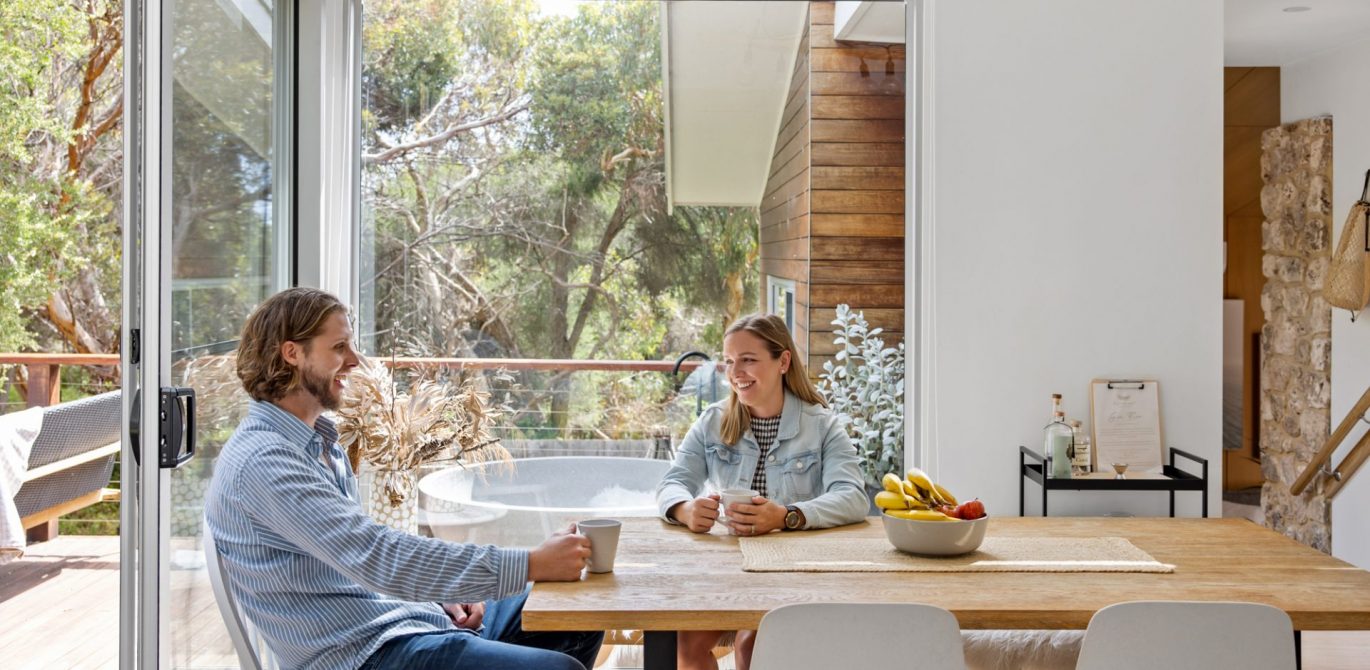What is a good interest rate? How much deposit do I need? How much can I spend? Is there still a First Home Owners Grant?
These are just a sample of the frequently asked questions from first home buyers eager to take that all important first step onto the Australian property ladder.
But before you start looking at homes, it’s essential to assess your financial health, calculate your current savings, monthly income expenses, and perhaps even talk to an expert.
Elders Head of Home and Commercial Finance, Stephen Gibson, is one of those experts.
He says understanding each step of the borrowing process would better equip those hoping to make their first property purchase.
“Australia offers various home loan options, including fixed-rate, variable-rate, and interest-only loans. Each has its pros and cons, so it’s crucial to understand them thoroughly,” Mr Gibson explained.
“In terms of a minimum deposit, it does vary, but a general rule of thumb is 5%, that would cover most of the lenders.”
What if I can’t come up with 5%?
“If you are borrowing more than 80% of the property purchase price, that is where Lenders Mortgage Insurance (LMI) comes in. LMI is there to protect the bank in the case you default on your loan and could add up to $30,000 to your overall loan term. LMI is something you want to avoid if you can, the more deposit you have, the more options and better interest rates you’ll have access to.”
Mr Gibson says the Australian Government offers several grants and incentives for first home buyers, such as the First Home Owner Grant (FHOG) and stamp duty concessions.
The First Home Owners Grant is a national scheme that has been assisting Australian people buying their first home for nearly 15 years, and the amount available to first home buyers has fluctuated over this time.
As of 2012, each state in Australia became responsible for its own grant amount and guidelines, but there are other options for first home buyers out there.
“Along with the FHOG, first home buyers can also leverage what’s called a Family Guarantee to secure their first home,” Mr Gibson explained.
“If Mum and Dad own a property and have equity in it, they can put their property up as security for the purchase of their child’s home. We’ve seen this quite a lot over the last 3 to 5 years, people calling on the bank of Mum and Dad to help get their purchases over the line.”
Mr Gibson says one major factor affecting prospective first home buyers at the moment, whether they realised it or not, is the use of buy now, pay later services such as Afterpay and Zip Pay.
“Along with your deposit amount, income and serviceability capacity, the banks will look at what credit you have or have had. Things like Afterpay and Zip Pay may not look like credit on face value but they are red flags to lenders, along with personal loans and credit cards, the banks are certainly going to look at that before approving your loan.”
He says consulting an expert is a good idea to not only help you navigate the pitfalls of borrowing and purchasing your first home, but in order to gain access to variety of loan options and better deals.
“Using a mortgage broker will give you choice. If you go to a lender yourself, they will offer you one, perhaps two of their products. A broker works in the best interests of you, their client, and will be able to speak to multiple lenders in order to gain access to multiple loan products, ultimately giving you more choice,” Mr Gibson added.
Elders Home and Commercial Finance can assist you with the all the information and guidance you need to make your first home purchase a smooth and successful one.
Ready to talk to an expert? Contact one in your area here.
